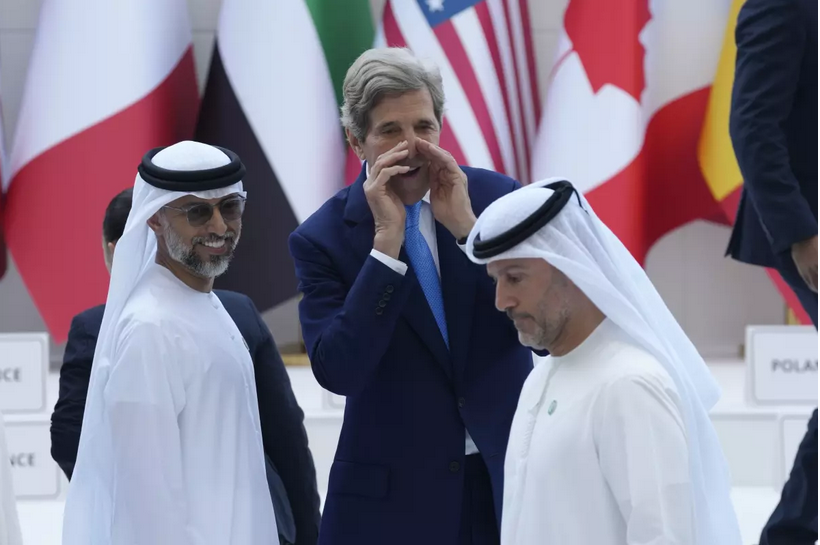International
Michael Smolens: Good news on climate change is hard to find
Date • 2023-12-10 389
John Kerry,
the U.S. special presidential envoy for climate, attends an event in
support of tripling global nuclear capacity by 2050 at the COP28 U.N.
Climate Summit, Saturday, Dec. 2, 2023, in Dubai, United Arab Emirates.(Peter Dejong / Associated Press)